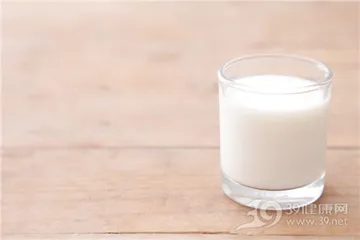Is weight loss always unsuccessful? You may lack these 4 nutrients

If you have strictly controlled your diet and never slackened off your serious exercise, then... Just not thin? It's very likely that you lack some nutrients necessary to lose weight.
vitamin D
There was a recent experimental study in Milan that studied the weight loss progress of two groups of experimental subjects who supplemented and did not supplement vitamin D during the weight loss process. According to the results, the group of people who took extra vitamin D lost more waist circumference and weight even if they ate the same low-calorie food.
Vitamin D is necessary for the body to make leptin. So if you find that your weight loss process has been stagnant, you can check whether you have a vitamin D deficiency.
Daily intake: 0.0005 to 0.01 mg
Equivalent to 35 grams of herring slices, 60 grams of salmon slices, 50 grams of eel or 2 eggs plus 150 grams of mushrooms.
food source
High-fat marine fish and fish eggs, animal liver, egg yolks, cream and cheese are relatively abundant, while lean meat, milk, and nuts contain trace amounts of vitamin D, while vegetables, grains, and their products and fruits contain a small amount of vitamin D or almost no vitamin D.
vitamin B family
The vitamin B family includes vitamin B1 (thiamine), vitamin B2 (riboflavin), vitamin B3 (niacin), vitamin B5 (pantothenate), vitamin B6 (pyridoxine), vitamin B12 (cyanocobalamin), vitamin B9 (folic acid), and vitamin B7 biotin.
Vitamin B can help the metabolism of carbohydrates, fats, and proteins to release energy, so it must be indispensable during weight loss. Among them, vitamins B1, B2 and B12 are the most important.
Daily intake: 2 - 4 mg
Because the vitamin B family is a water-soluble vitamin, excess vitamin B family will not be stored in the body, but will be completely excreted. So there is no need to worry about excessive intake at all, it is best to supplement daily.
food source
Vitamin B1 is widely found in seed skins, animal viscera, and lean meat. There is not much in vegetables and fruits; vitamin B2 is found in animal liver, milk, eggs, beans and green leafy vegetables. Most vitamin B12 comes from animal foods, and is contained in small amounts in liver, egg yolks, meat, shellfish, milk and dairy products.
calcium
Calcium plays a role in regulating acid-base balance and promoting metabolism in the human body, so calcium deficiency can easily cause uncomfortable reactions in the human body. It is not only slow weight loss, but also a small amount of dysmenorrhea, which are all sequelae of calcium deficiency.
Elevated blood calcium in the human body promotes the secretion of a hormone called calcitonin. This hormone can reduce people's appetite and reduce the amount of meals eaten; in addition, sufficient ionic calcium can combine with fatty acids and cholesterol in food in the intestine, blocking the absorption of fat in the intestine and making it drain with the feces.
Adult men and women should consume 800 mg per day
Bone calcium storage in adults reaches its peak, but during this period, the pressure of work, study, and life increases, which will consume a large amount of calcium in the body. If calcium is not replenished during this period, various elderly diseases will be caused.
food source
Milk, yogurt, cheese, loach, mussel, snails, shrimp skins, seaweed, crispy fried fish, oysters, peanuts, sesame paste, tofu, pine seeds, cabbage, cauliflower, cabbage, rapeseed, etc.
vitamin C
Vitamin C can synthesize carnitine, promote fat metabolism, and accelerate fat decomposition and burning. If carnitine content is insufficient during metabolism, it will lead to fat accumulation and the formation of adipose tissue.
If you lack vitamin C for a long time, you will definitely become fatter and fatter. Moreover, studies have found that people who consume enough vitamin C burn 30% more fat during exercise than people who consume insufficient vitamins.
Adults consume 100 mg of vitamin c per day
Please note: Excessive intake of vitamins will not only destroy the stability of the human body's internal environment, but may even cause poisoning.
food source
Among vegetables: peppers, chrysanthemum, bitter gourd, beans, spinach, potatoes, leeks, etc. are rich in content; among fruits: wild jujube, fresh dates, strawberries, citrus, lemon, etc. are the most; animal internal organs also contain a small amount of vitamin C.

[Benefit: Come and see how you should lose weight?]
Want to lose weight healthily? Want to know what is the right way to lose weight for you?